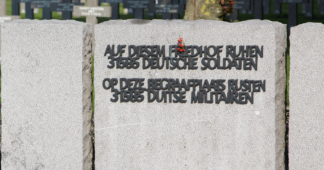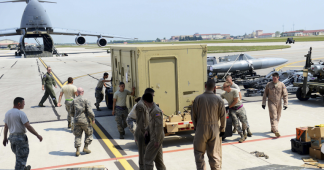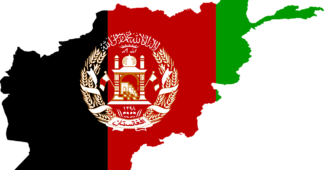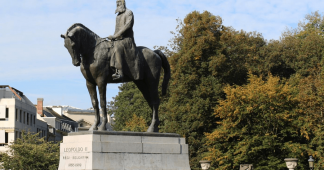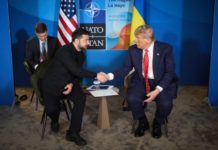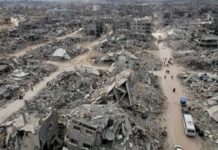By Herman Michiel
www.andereuropa.org
Belgium as state is a loyal member of NATO, to say the least. Near Brussels, it harbours the administrative/political headquarter of the military alliance, and near Mons there is SHAPE, the Supreme Headquarters Allied Powers Europe. Moreover, the Belgian socialist politician Paul-Henri Spaak is considered as one of the NATO-founders. He was its second secretary general (1957-1961). Willy Claes, another Belgian socialist, also took that job, but only for one year. He had to retire in 1995, when the so called Agusta-Dassault scandal erupted. It appeared that the Belgian socialist parties had received lots of bribery money related to military equipment orders for Agusta helicopters and adaptations to the F16 fighter jets.
All the traditional political parties are solid defenders of the Atlantic alliance. Whereas the green party at its beginnings in the 1980’s had a pacifist branch among its supporters, it became increasingly streamlined along the ‘atlantic consensus’, and is today – paralleling the German Greens — a staunch defender of NATO and supporter of higher military spending.
From the NATO point of view, Belgium is a bad member, spending ‘only’ 1,3% of its GDP for military purposes. The socialist minister of defence recently promised to gradually increase it to 1,54% in 2030, still below the 2% that the government promised to spend as its NATO ‘duty’. However, this frugality as for its military spending has nothing to do with principled choices, but with the fact that in regionalized Belgian politics (with the Dutch, French and the small German speaking communities), defence is a federal post, and is sometimes the residual result of complex negotiations between the different political entities. Nevertheless, the Belgian political class enjoys good relations with Washington. Not only is it a good client of military equipment (F16, F35), but it also harbours “10 to 20” American nuclear bombs at the military base of Kleine Brogel, a decision stealthily taken by the government without informing Parliament, and – until very recently – ever since officially denied. And the White House will never forget that it was by courtesy of the Belgian government that it got the uranium needed for the nukes it dropped on Hiroshima and Nagasaki. The ‘Belgian Congo’ was at the time one of the few sources of the radioactive material.
That for the ‘official’ position of Belgium w.r.t. NATO. On the other hand, there is a small but quite active peace movement, in both parts of the country (Dutch and French speaking), and supported by a variety of organisations, ranging from the far left to religiously inspired groups as Pax Christi. Historically, the roots of the movement are twofold. Especially in Flanders, it goes back to the horrible consequences of World War 1, when large parts of the region were totally destroyed. The anti-war feelings developed in rather broad circles, including Flemish nationalism, but missed a political reflexion on the causes of war and later on, on geopolitics, NATO etcetera. In French speaking Belgium, the peace movement developed later, after World War 2, but was more politically oriented, mainly in left and communist circles which opposed the Cold War. That the Belgian peace movement may mobilise a considerable part of the population was shown in 1983. On 23 October of that year, 400.000 people (on a population of 10 million) demonstrated in Brussels against the installation of American nuclear bombs. A clear message to the political leaders, but the nukes are still here at Kleine Brogel…
Today, as appears in the protests against the Russian invasion in Ukraine, the peace movements of both language communities work well together. The platform on which this cooperation between some 30 organisations is based mentions also the role of NATO, requesting to stop its eastern expansion. However, NATO does not figure in the agreement for the protest demonstration against the Russian war on 27 march; this was the price paid for the implication of the christian democrat and social democrat trade unions, both keeping considerable political ties with their respective ‘mother parties’.
In the Belgian political landscape, there is only one party which is opposed to NATO and has the retreat of the country from the Atlantic Alliance as a programme point. It is the small left PVDA/PTB ‘workers party’, which since 2019 has 12 representatives in the federal parliament and one member (Marc Botenga) in the European Parliament.
We remind our readers that publication of articles on our site does not mean that we agree with what is written. Our policy is to publish anything which we consider of interest, so as to assist our readers in forming their opinions. Sometimes we even publish articles with which we totally disagree, since we believe it is important for our readers to be informed on as wide a spectrum of views as possible.
